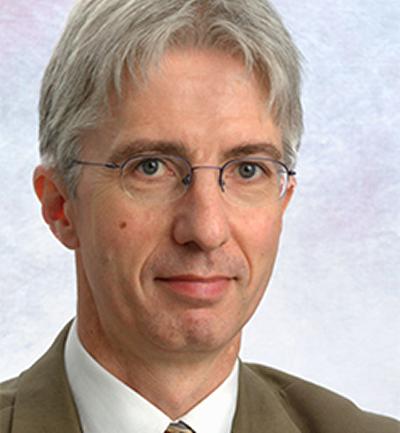Emeritus Professor Colin Kennedy BA, MBBS, MD
Professor in Neurology and Paediatrics, Consultant and Clinical Lead in Paediatric Neurology

- Related links
Colin Kennedy graduated in Medicine and in Psychology from the University of Oxford and completed his clinical training in London. Following postgraduate medical training in London, Southampton and at Johns Hopkins Hospital in the USA, he established in 1988 a new paediatric neurology service in Southampton to a population of 3 million in central Southern England. He remains in that post at Southampton where he was appointed to a personal chair in Neurology and Paediatrics in 2006. He is a former president of the British Paediatric Neurology Association and of the European Paediatric Neurology Society.
His several research interests have shared a common theme of measuring neurological and other health outcomes in infants, children and young people. His research on universal newborn hearing screening underpinned its introduction throughout the UK and the USA. Current interests include the effects of early intervention on language and reading in permanent childhood hearing impairment and on interventions to improve quality of survival after childhood brain tumours. He is also leading an initiative to make a positive difference to the care of children with neurological problems across Europe and Central Asia, involving the European Office of the World Health Organisation and paediatric neurologists in Western Europe and the Commonwealth of Independent States.
It’s important in my field to move beyond merely describing the complex problems associated with paediatric neurological conditions to making a positive difference. I have been lucky to be involved in of topics of international public health as well as clinical significance and to play some role in establishing reliably whether interventions are harmful or beneficial and need to be abandoned or embraced.
Colin Kennedy was born and raised in Edinburgh, graduated in Medicine and in Physiology and Psychology from the University of Oxford and completed his clinical training at Westminster Hospital Medical School London. Following appointments at postgraduate teaching hospitals in London and an MRC fellowship at Northwick Park Clinical Research Centre London, he completed his training in Southampton and at Johns Hopkins Hospital Baltimore, Maryland where he was also joint leader of the Paediatric Neuro-oncology service.
In 1988 he established a new paediatric neurology service in Southampton serving a population of 3 million in central Southern England and he remains in that post at Southampton where he was appointed to a personal chair in 2006. Fruitful research collaborations include close links with the School of Psychology.
He is a former president of his specialty group in the UK (the British Paediatric Neurology Association and also in Europe (the European Paediatric Neurology Society). He also convened in 1999 the European Committee of National Advisors in Paediatric Neurology.
Current interests include the benefit of early intervention for later language, reading skills and social development in children and young people with permanent hearing impairment; quality of survival after childhood brain tumours; the care of children with neurological problems across Europe and Central Asia, including the Commonwealth of Independent States (former Soviet Union).
Qualifications
1st BM, University of Oxford (1973)
BA, Psychology and Physiology, University of Oxford (1975)
MBBS, London University (1978)
MD, London University (1987)
Appointments held
MRC Research Fellow and Honorary Registrar in Paediatrics, Northwick Park Clinical Research Centre, Harrow, London 1982-1984
Clinical Lecturer and Honorary Senior Registrar in Child Health, University of Southampton 1984-1987
Clinical Fellow, Department of Neurology, Johns Hopkins Hospital, Baltimore, Maryland, USA 1985-1987
Consultant in Paediatric Neurology, Southampton University Hospitals Trust
1988-present
Senior Lecturer then Reader in Paediatric Neurology 1988-2006
Professor in Neurology and Paediatrics 2006-present.